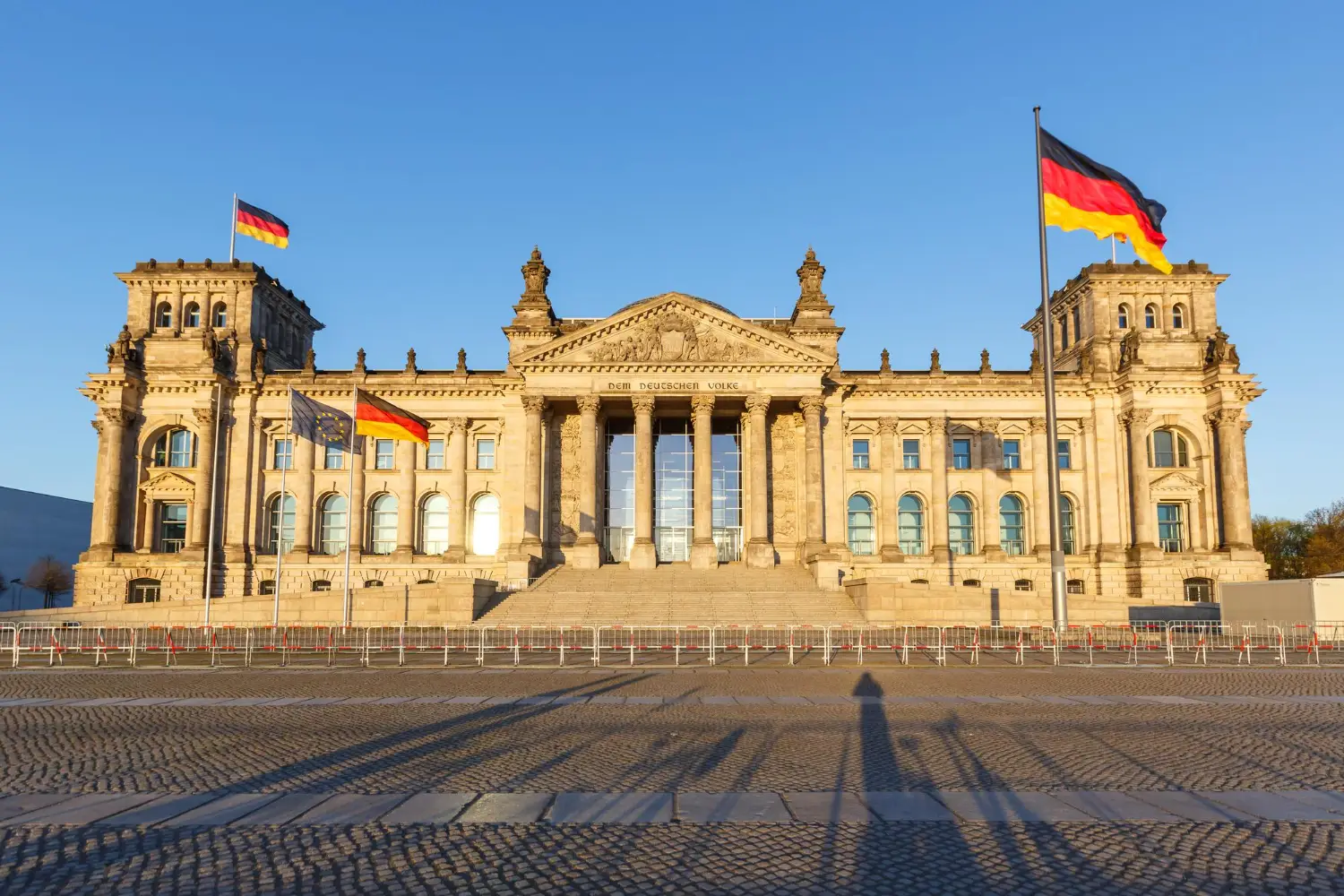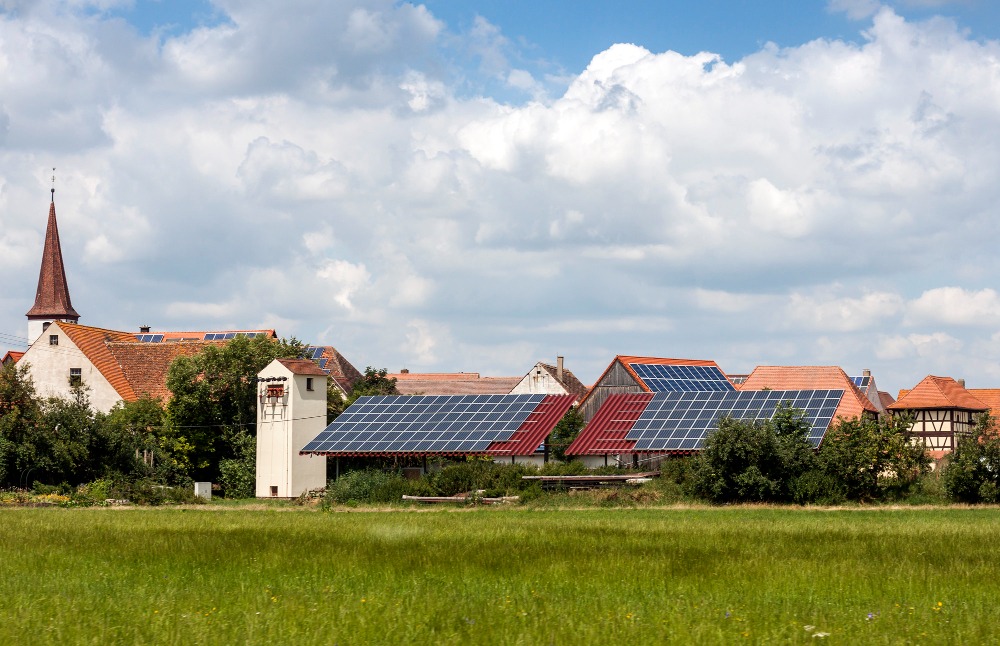
2025 wasn’t slow — it was seismic. Germany didn’t roar; it recalibrated. It traded the roar of headlines for the hum of investment, invention, and identity-building. If 2024 was about endurance, 2025 was Germany quietly engineering its own renaissance — spreadsheets in one hand, solar panels in the other.
When Friedrich Merz moved into the Chancellery in May 2025, the vibe in Berlin’s government quarter shifted from “coalition therapy” to “boardroom with a mission.” Germany started calling plays again — not waiting for Brussels to set the tone.
The new government redefined “security” to include cyber defense, critical-infrastructure protection, and supply-chain sovereignty. Its 5 percent-of-GDP security proposal turned heads across NATO. The message? We’re done being the quiet cousin at the European dinner table.
You could feel it in the cafés near Brandenburger Tor: Berlin’s diplomatic pulse quickened. And if you’ve read our deep-dive on What Not to Do in Berlin, you already know — taking initiative is very un-German. Until now.
On paper, GDP growth barely blinked — 0.2 percent. In reality, Germany was minting its next decade.
Public coffers unleashed €1 trillion toward infrastructure and climate transition. The private sector replied with €735 billion through the Made for Germany pact.
That’s not a stimulus — that’s a statement.
Tech giants, Mittelstand manufacturers, and international investors doubled down because Germany still ranks 5th worldwide and 2nd in Europe for FDI. When the world zigged toward volatility, capital zagged back to Berlin.
Berlin’s finance crowd might not dance like the ones at Berlin Clubbing Culture, but make no mistake — this was the capital’s hottest performance of the year.
The startup scene went from caffeine-fuelled chaos to industrial heroics.
Munich’s Tozero pulled off Europe’s first 100 % recycled-graphite battery test, cutting China-centric supply risk and slashing the carbon footprint of EVs.
Meanwhile, Additive Drives printed the future — literally — with 45 % more-power-dense 3D-printed electric motors, bagging the German Innovation Prize and turning lab research into exportable reality.
And if you like your science with a side of poetry, researchers at Würzburg University recreated artificial photosynthesis — basically teaching light how to behave like a German engineer: efficient, precise, and endlessly renewable.
This is what “Made in Germany 2.0” looks like.

Forget theory. 2025 was the year the energy transition left whitepapers and landed on balconies. Nearly a million households joined the rooftop revolution with balcony solar panels, while total capacity climbed to 94.6 GW, just inches from the symbolic 100 GW mark.
The new Building Energy Act and Heat Planning Act gave the renewable-heating sector long-awaited clarity. Heat pumps stopped being futuristic gadgets and started humming quietly across suburbs from Leipzig to Lübeck.
Need tips on surviving that first Berlin winter with or without solar heating? Read How to Survive Your First Berlin Winter.
If you thought 2025 was all macro-policy, you missed the glow-up.
Chemnitz owned the spotlight as European Capital of Culture, proving Saxony could out-cool the stereotypes.
Back in the capital, Museum Island turned 200 — two centuries of world art and a reminder that Berlin doesn’t just reinvent itself; it archives every version.
UNESCO added Herrnhut in Saxony to the global heritage list, while visitors queued around the block for Berlin’s reopened galleries. For context, check out Free Museums in Berlin — a survival guide for culture addicts on expat startup salaries.
ruled the year. Netflix Germany dropped Kreuzberg Confidential, a gritty-yet-ironically-glam series about DJs moonlighting as data thieves, instantly trending across Europe and sparking a new wave of “techno noir” aesthetics. Meanwhile, ZDF’s Deutschland 2025 became the satirical TV phenomenon of the year — a sharp, meme-ready comedy poking fun at bureaucracy, startup culture, and Berlin’s eternal construction sites. Long-running national treasure Tatort reinvented itself with a darker Berlin storyline set in a warehouse rave, complete with a cameo from real-life DJ Peggy Gou — yes, it went viral on TikTok.
In 2025 sounded bold, bilingual, and beautifully chaotic. Nina Chuba and Apache 207 ruled the German charts, blending English hooks with homegrown flair, while newcomer Paula Hartmann became the year’s breakout star with an album critics called “Gen Z melancholy with a side of club beats.” Even Rammstein resurfaced for a surprise eco-themed arena tour — because only in Germany can fire, philosophy, and solar panels share the same stage.
The seventh art came roaring back, too. The Berlinale 2025 was star-studded again, hosting Cate Blanchett, Omar Sy, and the European premiere of Poor Things 2. German indie hit Auf Wiedersehen, Baby stole the critics’ hearts with its bittersweet portrayal of expat life in Neukölln, while the box office crowned Fast & Fürious: Autobahn Drift the year’s guilty pleasure, proving that even Germans like a little absurdity with their engineering precision.

Between February and September, Germany proved it still dominates anything requiring precision, stamina, and spreadsheets.
You can’t spell “engineering excellence” without “ice-track design.”
2025 wasn’t Germany’s victory lap — it was the warm-up stretch before another sprint. If you’re thinking about moving to Germany, or are an expat pondering if staying is the right choice, this article is the sign you were looking for.
2025 was a year of foundations, of aligning geopolitics + climate policy + innovation + culture into something cohesive.
For expats living in the Country, it meant watching a country famous for caution suddenly take bold, logical leaps — and maybe, just maybe, rediscover its confidence in 2026.
And if you’re new to this rhythm, start decoding it through our local stories:
Understanding Germany isn’t about reading stats — it’s about feeling how the system hums, innovates, and occasionally dances to techno under a solar-powered skyline.
Expats Magazine will guide you through your exodus so keep it in your radar.
Whether you're moving or settling in Germany, A4ord.de ensures trusted experts are just a click away.